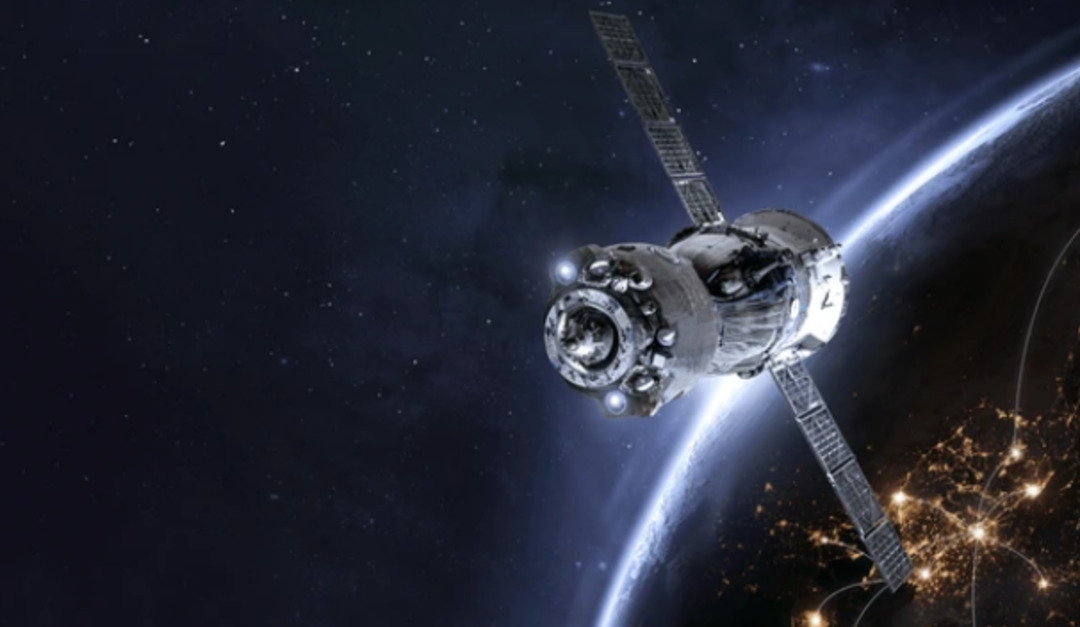-
Kosmos 2553: The Mysterious Russian Satellite and the Risks of Nuclear Weapons

Data from specialized space companies have shown that the secret Russian satellite "Kosmos 2553," which U.S. authorities suspect is linked to a nuclear weapons program, exhibits erratic behavior in its orbit, indicating a possible loss of control.
"Kosmos 2553" was launched weeks before the onset of the Russian war on Ukraine in February 2022. Irregularities in its orbit have been noted on several occasions over the past year, according to data provided by "LeoLabs," a company specializing in space tracking, as well as visual information from "Slingshot Aerospace," which was shared with Reuters.
The satellite is believed to serve as a platform for Russian intelligence and radiation testing. "Kosmos 2553" has become the center of American accusations that Russia is developing a nuclear weapon capable of destroying entire satellite networks, such as SpaceX's "Starlink" system, which is used by Ukrainian soldiers.
U.S. security agencies assess that the purpose of "Kosmos 2553" is not as a direct weapon but as a support for the development of an anti-satellite nuclear weapon. In contrast, Moscow has denied these allegations, asserting that the satellite is intended solely for scientific research.
"Kosmos 2553" is situated in an isolated orbit approximately 2,000 kilometers above the Earth's surface, in a high-radiation area typically avoided by communication and Earth observation satellites. LeoLabs observed "abnormal" movements of the satellite last November, prompting the Center for Strategic and International Studies in Washington to state that the satellite is no longer operational.
While the U.S. Space Command has acknowledged a change in the altitude of "Kosmos 2553," it has refrained from providing additional assessments regarding its current status. According to Slingshot Aerospace's global telescope network, changes in the satellite's activity were noted in May 2024, with a change in brightness detected, suggesting the possibility of its irregular orbit.
However, it appears that "Kosmos 2553" has stabilized again according to the latest observations, with the group confirming that its mission is to test devices in a high-radiation environment, although a spokesperson for U.S. Space Command noted that this does not align with its characteristics.
"Kosmos 2553" is one of many Russian satellites associated with its military and intelligence programs, and Russia considers the "Starlink" network a legitimate military target, given its use by Ukrainian soldiers in the context of their military operations.
You May Also Like
Popular Posts
Caricature
BENEFIT Sponsors BuildHer...
- April 23, 2025
BENEFIT, the Kingdom’s innovator and leading company in Fintech and electronic financial transactions service, has sponsored the BuildHer CityHack 2025 Hackathon, a two-day event spearheaded by the College of Engineering and Technology at the Royal University for Women (RUW).
Aimed at secondary school students, the event brought together a distinguished group of academic professionals and technology experts to mentor and inspire young participants.
More than 100 high school students from across the Kingdom of Bahrain took part in the hackathon, which featured an intensive programme of training workshops and hands-on sessions. These activities were tailored to enhance participants’ critical thinking, collaborative problem-solving, and team-building capabilities, while also encouraging the development of practical and sustainable solutions to contemporary challenges using modern technological tools.
BENEFIT’s Chief Executive Mr. Abdulwahed AlJanahi, commented: “Our support for this educational hackathon reflects our long-term strategic vision to nurture the talents of emerging national youth and empower the next generation of accomplished female leaders in technology. By fostering creativity and innovation, we aim to contribute meaningfully to Bahrain’s comprehensive development goals and align with the aspirations outlined in the Kingdom’s Vision 2030—an ambition in which BENEFIT plays a central role.”
Professor Riyadh Yousif Hamzah, President of the Royal University for Women, commented: “This initiative reflects our commitment to advancing women in STEM fields. We're cultivating a generation of creative, solution-driven female leaders who will drive national development. Our partnership with BENEFIT exemplifies the powerful synergy between academia and private sector in supporting educational innovation.”
Hanan Abdulla Hasan, Senior Manager, PR & Communication at BENEFIT, said: “We are honoured to collaborate with RUW in supporting this remarkable technology-focused event. It highlights our commitment to social responsibility, and our ongoing efforts to enhance the digital and innovation capabilities of young Bahraini women and foster their ability to harness technological tools in the service of a smarter, more sustainable future.”
For his part, Dr. Humam ElAgha, Acting Dean of the College of Engineering and Technology at the University, said: “BuildHer CityHack 2025 embodies our hands-on approach to education. By tackling real-world problems through creative thinking and sustainable solutions, we're preparing women to thrive in the knowledge economy – a cornerstone of the University's vision.”
opinion
Report
ads
Newsletter
Subscribe to our mailing list to get the new updates!






















